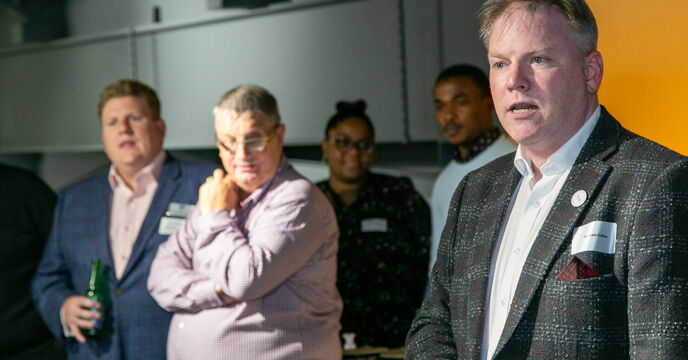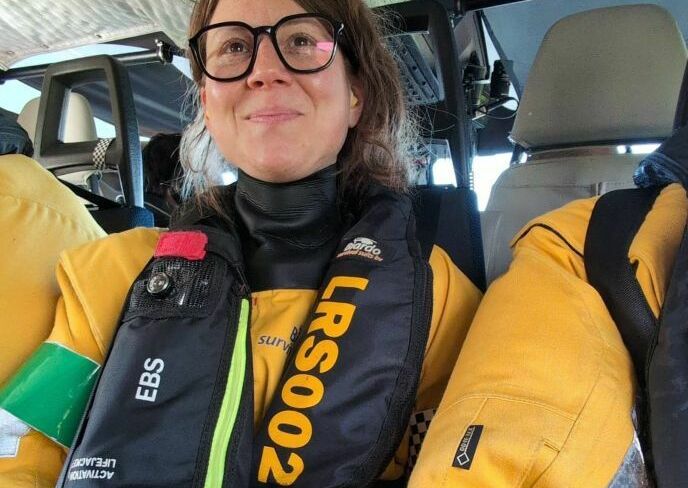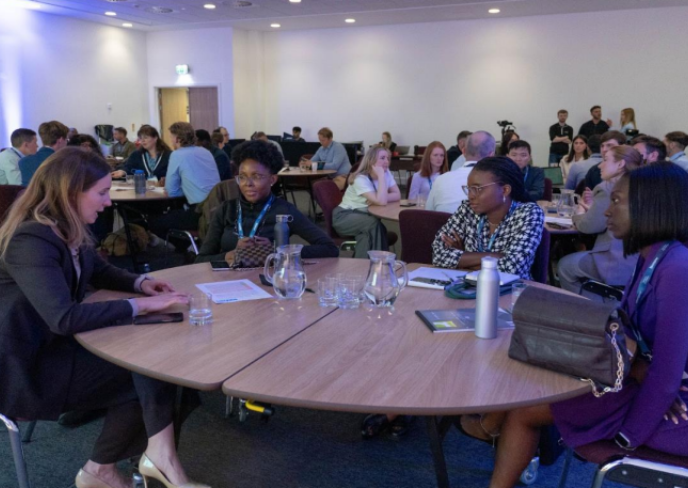Big Data at Pumps and Pipes UK
September 2018
Pumps and Pipes UK is a new conference which builds on the success of a similar event that has run in Houston for a number of years. Addressing the themes of robotics, sensing, imaging, AI and power harvesting, the conference will look at the application of these technologies within the medical, oil & gas, aerospace and space industries.
 Professor Margaret Cruickshank, Professor of Gynaecology at the University of Aberdeen, is a Pumps and Pipes UK Committee Member and sums it up perfectly in relation to the medical industry:
“Health data is the new fuel to drive change in people's lives.”
Course Leader of Subsea Engineering at Robert Gordon University, Dr Ibiye Iyalla, also sits on the committee and explains the implications that analysing Big Data could have on the energy industry:
“The ability to analyse Big Data to establish trends and patterns is a key enabler for digitalisation as technology development tends toward full automation. Exploring how workflows and processes can be digitalised to improve efficiency and enhance decision making is one of the areas of focus at the Pumps and Pipes UK conference. It will be interesting to see how data analytics is already being implemented in the medical and space sectors and how lessons learnt can be applied in the oil and gas sector as we go digital.”
Chair of the Pumps and Pipes UK Committee, and Chair of The Society of Petroleum Engineers Aberdeen Section, Ian Phillips discusses what can be learned from, and shared with, other industries out with oil & gas:
“Big Data” is possibly the most used – and abused and least understood – expression in use in our time.
It is generally understood in the oil and gas sector to include applying artificial intelligence and machine learning to examine large volumes of data and identify patterns that are meaningful.
A well understood operational example is the application of data analytics to spot deviations in the sensor data from a gas turbine engine – detecting subtle changes in temperature or vibration that can be the precursor to a failure. This enables the operator to undertake preventative maintenance prior to a potentially catastrophic failure. This technology is also used to monitor aeroplane engines to avoid in-flight failure.
Some novel oil and gas applications under development include capabilities to “read” scanned drawings to re-construct a digital twin of an old platforms; to “read” legislation and check that the companies’ monitoring systems deliver compliance; to integrate regional subsurface data and create more sophisticated geological models than are practical with human interpretation; and to scan 3D seismic data sets looking for the patterns that might be oil fields.
This is very analogous to medical applications looking for useful information in huge populations, and in space where the sheer volume of data captured needs AI just to make sense of it.”
Companies and individuals are invited to submit a 200 word abstract addressing the themes of robotics, sensing, imaging, AI and power. You will only be expected to deliver a 20 minute presentation, not a full written paper. As well as presentations, we are also seeking proposals for 5 minute ‘Techbyte’ sessions and posters if these options are preferable. Full details can be found at here. Abstracts will close on 1 October 2018. To submit your abstract, email the Events Team aberdeen.events@spe-uk.org or call 01224 646311.
Professor Margaret Cruickshank, Professor of Gynaecology at the University of Aberdeen, is a Pumps and Pipes UK Committee Member and sums it up perfectly in relation to the medical industry:
“Health data is the new fuel to drive change in people's lives.”
Course Leader of Subsea Engineering at Robert Gordon University, Dr Ibiye Iyalla, also sits on the committee and explains the implications that analysing Big Data could have on the energy industry:
“The ability to analyse Big Data to establish trends and patterns is a key enabler for digitalisation as technology development tends toward full automation. Exploring how workflows and processes can be digitalised to improve efficiency and enhance decision making is one of the areas of focus at the Pumps and Pipes UK conference. It will be interesting to see how data analytics is already being implemented in the medical and space sectors and how lessons learnt can be applied in the oil and gas sector as we go digital.”
Chair of the Pumps and Pipes UK Committee, and Chair of The Society of Petroleum Engineers Aberdeen Section, Ian Phillips discusses what can be learned from, and shared with, other industries out with oil & gas:
“Big Data” is possibly the most used – and abused and least understood – expression in use in our time.
It is generally understood in the oil and gas sector to include applying artificial intelligence and machine learning to examine large volumes of data and identify patterns that are meaningful.
A well understood operational example is the application of data analytics to spot deviations in the sensor data from a gas turbine engine – detecting subtle changes in temperature or vibration that can be the precursor to a failure. This enables the operator to undertake preventative maintenance prior to a potentially catastrophic failure. This technology is also used to monitor aeroplane engines to avoid in-flight failure.
Some novel oil and gas applications under development include capabilities to “read” scanned drawings to re-construct a digital twin of an old platforms; to “read” legislation and check that the companies’ monitoring systems deliver compliance; to integrate regional subsurface data and create more sophisticated geological models than are practical with human interpretation; and to scan 3D seismic data sets looking for the patterns that might be oil fields.
This is very analogous to medical applications looking for useful information in huge populations, and in space where the sheer volume of data captured needs AI just to make sense of it.”
Companies and individuals are invited to submit a 200 word abstract addressing the themes of robotics, sensing, imaging, AI and power. You will only be expected to deliver a 20 minute presentation, not a full written paper. As well as presentations, we are also seeking proposals for 5 minute ‘Techbyte’ sessions and posters if these options are preferable. Full details can be found at here. Abstracts will close on 1 October 2018. To submit your abstract, email the Events Team aberdeen.events@spe-uk.org or call 01224 646311.
 Professor Margaret Cruickshank, Professor of Gynaecology at the University of Aberdeen, is a Pumps and Pipes UK Committee Member and sums it up perfectly in relation to the medical industry:
“Health data is the new fuel to drive change in people's lives.”
Course Leader of Subsea Engineering at Robert Gordon University, Dr Ibiye Iyalla, also sits on the committee and explains the implications that analysing Big Data could have on the energy industry:
“The ability to analyse Big Data to establish trends and patterns is a key enabler for digitalisation as technology development tends toward full automation. Exploring how workflows and processes can be digitalised to improve efficiency and enhance decision making is one of the areas of focus at the Pumps and Pipes UK conference. It will be interesting to see how data analytics is already being implemented in the medical and space sectors and how lessons learnt can be applied in the oil and gas sector as we go digital.”
Chair of the Pumps and Pipes UK Committee, and Chair of The Society of Petroleum Engineers Aberdeen Section, Ian Phillips discusses what can be learned from, and shared with, other industries out with oil & gas:
“Big Data” is possibly the most used – and abused and least understood – expression in use in our time.
It is generally understood in the oil and gas sector to include applying artificial intelligence and machine learning to examine large volumes of data and identify patterns that are meaningful.
A well understood operational example is the application of data analytics to spot deviations in the sensor data from a gas turbine engine – detecting subtle changes in temperature or vibration that can be the precursor to a failure. This enables the operator to undertake preventative maintenance prior to a potentially catastrophic failure. This technology is also used to monitor aeroplane engines to avoid in-flight failure.
Some novel oil and gas applications under development include capabilities to “read” scanned drawings to re-construct a digital twin of an old platforms; to “read” legislation and check that the companies’ monitoring systems deliver compliance; to integrate regional subsurface data and create more sophisticated geological models than are practical with human interpretation; and to scan 3D seismic data sets looking for the patterns that might be oil fields.
This is very analogous to medical applications looking for useful information in huge populations, and in space where the sheer volume of data captured needs AI just to make sense of it.”
Companies and individuals are invited to submit a 200 word abstract addressing the themes of robotics, sensing, imaging, AI and power. You will only be expected to deliver a 20 minute presentation, not a full written paper. As well as presentations, we are also seeking proposals for 5 minute ‘Techbyte’ sessions and posters if these options are preferable. Full details can be found at here. Abstracts will close on 1 October 2018. To submit your abstract, email the Events Team aberdeen.events@spe-uk.org or call 01224 646311.
Professor Margaret Cruickshank, Professor of Gynaecology at the University of Aberdeen, is a Pumps and Pipes UK Committee Member and sums it up perfectly in relation to the medical industry:
“Health data is the new fuel to drive change in people's lives.”
Course Leader of Subsea Engineering at Robert Gordon University, Dr Ibiye Iyalla, also sits on the committee and explains the implications that analysing Big Data could have on the energy industry:
“The ability to analyse Big Data to establish trends and patterns is a key enabler for digitalisation as technology development tends toward full automation. Exploring how workflows and processes can be digitalised to improve efficiency and enhance decision making is one of the areas of focus at the Pumps and Pipes UK conference. It will be interesting to see how data analytics is already being implemented in the medical and space sectors and how lessons learnt can be applied in the oil and gas sector as we go digital.”
Chair of the Pumps and Pipes UK Committee, and Chair of The Society of Petroleum Engineers Aberdeen Section, Ian Phillips discusses what can be learned from, and shared with, other industries out with oil & gas:
“Big Data” is possibly the most used – and abused and least understood – expression in use in our time.
It is generally understood in the oil and gas sector to include applying artificial intelligence and machine learning to examine large volumes of data and identify patterns that are meaningful.
A well understood operational example is the application of data analytics to spot deviations in the sensor data from a gas turbine engine – detecting subtle changes in temperature or vibration that can be the precursor to a failure. This enables the operator to undertake preventative maintenance prior to a potentially catastrophic failure. This technology is also used to monitor aeroplane engines to avoid in-flight failure.
Some novel oil and gas applications under development include capabilities to “read” scanned drawings to re-construct a digital twin of an old platforms; to “read” legislation and check that the companies’ monitoring systems deliver compliance; to integrate regional subsurface data and create more sophisticated geological models than are practical with human interpretation; and to scan 3D seismic data sets looking for the patterns that might be oil fields.
This is very analogous to medical applications looking for useful information in huge populations, and in space where the sheer volume of data captured needs AI just to make sense of it.”
Companies and individuals are invited to submit a 200 word abstract addressing the themes of robotics, sensing, imaging, AI and power. You will only be expected to deliver a 20 minute presentation, not a full written paper. As well as presentations, we are also seeking proposals for 5 minute ‘Techbyte’ sessions and posters if these options are preferable. Full details can be found at here. Abstracts will close on 1 October 2018. To submit your abstract, email the Events Team aberdeen.events@spe-uk.org or call 01224 646311.












